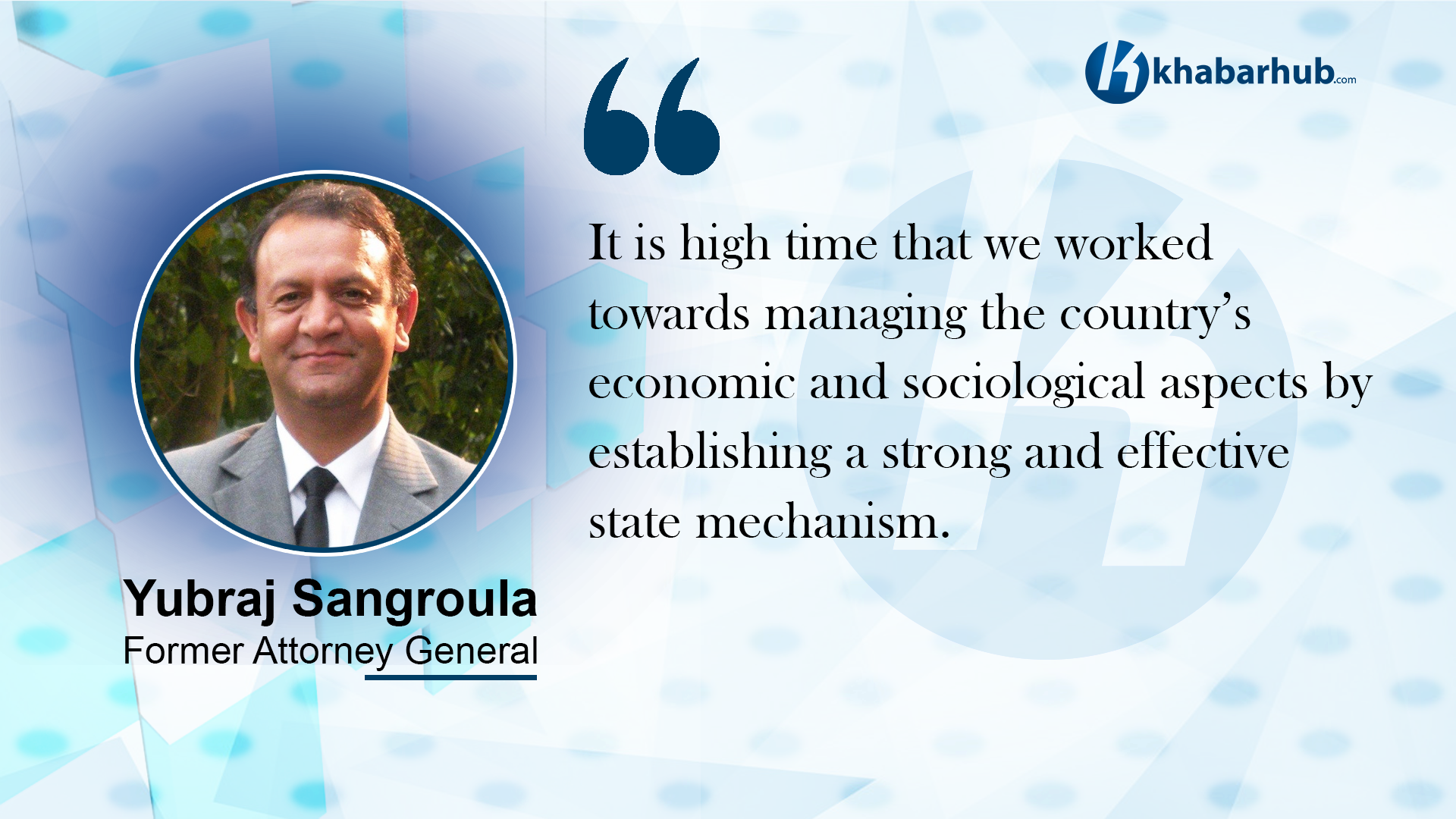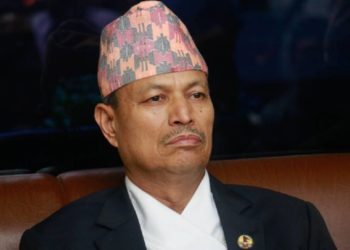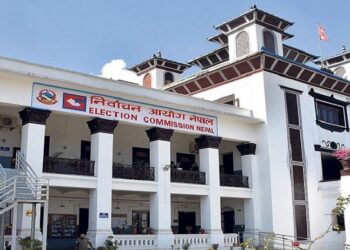Professor Dr. Yubaraj Sangroula, a political analyst and a renowned advocate, is well-informed about international affairs. Recently, Khabarhub caught up with Dr. Sangraula, who is also a former Attorney General, for his views about Nepal’s latest political affairs, and its impact in the global arena. The following is an excerpt of the interview:
Nepal’s unstable politics has disgruntled the people. Do you see any factors that are playing roles to destabilize Nepali politics?
So far as the issue of political instability is concerned, it is, to a larger extent, an individual perspective. Politics regulates society. Ideology manages politics. Three factors – economy, sociology, and psychology – basically control ideology. Currently, these three factors are in a bad shape. This shows that we have been practicing a defective ideology, which has led to the current political scenario. It is evident from our past experiences that some unseen forces are hell-bent on creating political instability in Nepal. The country’s political parties and their leaders need to realize this. Furthermore, it is high time that we worked towards managing the country’s economic and sociological aspects by establishing a strong and effective state mechanism.
Who is trying to destabilize Nepal? Is it an external or internal element? Or is it the country’s political system that is weakening the state?
Take, for instance, Leo Rose, a British national, who used to play a decisive role in Nepal’s politics during the then King Mahendra’s Panchayat regime. He used to live in Nepal and had a good relationship with the king. He even used to visit Pashupatinath Temple by wearing Daura Suruwal. Rose, in his book, has quoted a minister during King Mahendra’s rule expressing worry over the country’s future. He has mentioned in his book that Nepal would be ‘distributed’ between India and China. That means the western powers have ‘fit in’ separate mechanisms to have a closer look at China and India. Similarly, China and India have also different perspectives to look at each other as well as the western powers. This has created a triangular effect where our politicians, bureaucracy, and security bodies have fallen prey.
The incumbent government, which seemed successful towards ending the syndicate in public transport later appeared helpless. A meager 10 to 15 percent of mafias, active in various sectors such as transport, education, and health, have nexus with foreign powers, including India.
Where did the politicians fail then?
Basically, there are three factors, which are responsible for creating instability in Nepal. It is, therefore, difficult to control society. There are mafias having nexus with neighboring as well as other powers. The incumbent government, which seemed successful towards ending the syndicate in public transport later appeared helpless. A meager 10 to 15 percent of mafias, active in various sectors such as transport, education, and health, have nexus with foreign powers, including India. This has made the system weaker. Had the state mechanisms such as the National Investigation Bureau, Nepali Police and Bureaucracy played an effective role, the country would not have been so weak.
The government could have amended the country’s laws if there are loopholes plaguing the state mechanisms? What is hampering the two-thirds majority government to plug in loopholes?
The government did not realize the problem embedded within the state mechanism. Every political party is entrapped in intra-party wrangling and differences. Not a single party seems bothered to understand who is playing a foul game inside the party. It is their responsibility to find out the major root of the problem.
What would be your suggestion to the parties to ensure political stability?
French model appears closer as a solution measure to the existing political problem. Napoleon bailed France out of the political quagmire that had lasted for about a decade. The country cannot develop unless it draws foreign currencies by exporting its products. The government should establish markets for businessmen to sell their goods. This will encourage people to produce goods and generate income. It will also help prevent people going abroad for employment. The provincial and local governments should be empowered to carry out development works to resolve the existing problems.









Comment